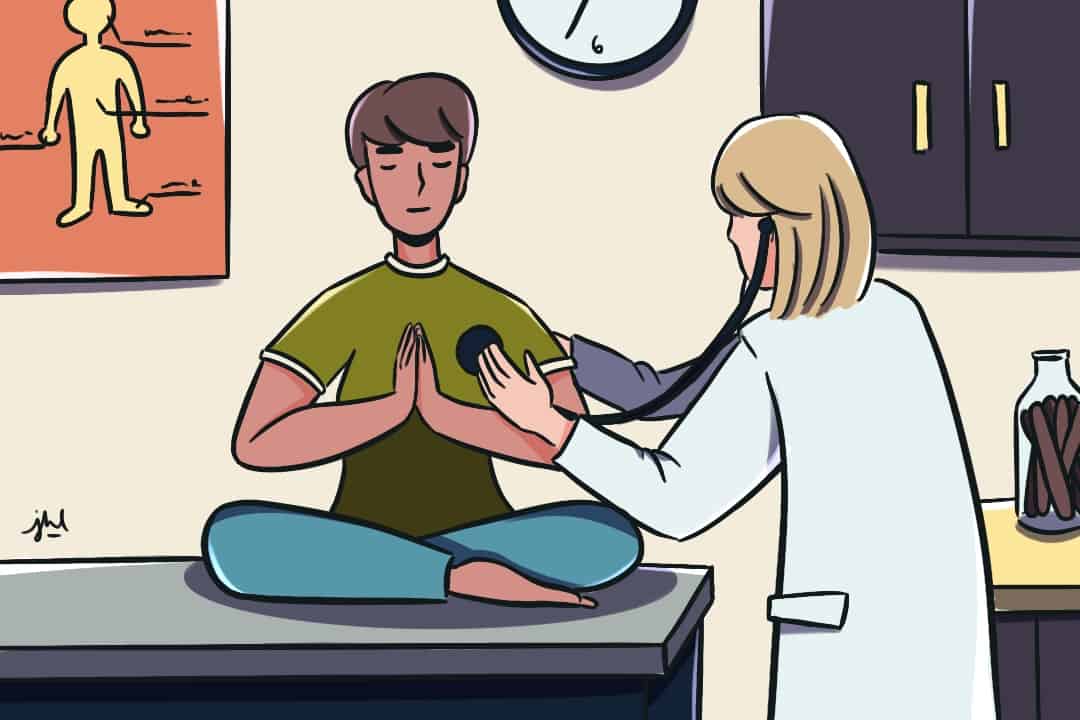It’s common to think of mental health as separate from physical health.
When you mention that you’re going to the doctor, no one bats an eye. You might even feel comfortable disclosing this information. Talking about psychotherapy, on the other hand, still feels like an uncomfortable topic to many, with mental health care heavily stigmatized in today’s society.
This distinction between mental and physical health is very recent in medical history. Most ancient and traditional medicine addressed the mind alongside the body, although not always by that name. Older medical frameworks like traditional Chinese medicine and the humours system link both physical and mental ailments to a common cause. Regardless of the terms used, many traditional treatments aimed to heal you psychologically to fix physical ailments.
Modern Western medicine, however, tends to focus more on the exterior, which results in people telling those with mental disorders to ‘suck it up’ and deal with their issues, rather than seeking out the proper care and support they need.
Your mind is your brain
The mind is a set of functions and processes that make up your conscious experience of the world. It is the seemingly non-physical thing that the physical workings of the brain give rise to, allowing you to have cognition and consciousness.
But as non-physical as a construct like the mind seems, it is rooted in and affected by physical changes. For example, high levels of neurotransmitters like serotonin may give rise to feelings of happiness. Cortisol — a hormone that is released in stressful situations — can have a large effect on stress and anxiety.
When neurons fire in our brain, we are given the ability to think, reason, feel, experience, and so much more. Considering how inextricably linked our mental world is to our physical world, it is irrational to believe that our mental health is separate from our physical health.
One common way the intersection of mental and physical health affects us is how exercise and physical activity improve our mental health. There’s a reason that doctors may prescribe exercise to individuals who feel more depressed or anxious.
At a chemical level, physical activity causes your body to release endorphins and serotonin, which have a positive impact on our mood and well-being. More indirectly, though, being outside increases our bodies’ access to sunlight, fresh air, and natural sounds.
Research shows that exercise in the morning also improves some aspects of academic performance. Studies show that those who ate breakfast and exercised before school were more attentive and retained more information in math courses.
What’s less well-known is that this works the other way around as well; mental activity and care can improve your physical health.
Mentally healthy individuals get less sick
Research shows that having some mental disorders can be attributed to greater risks to your physical health. This suggests that looking after your mental health may improve your physical health.
One profound example of this is loneliness and social contact. We feel lonely when we have less social contact and connectedness than we need and desire. This threshold is different for everyone. While we may consider loneliness to just be a mental health concern, it has intense physical impacts too. Loneliness leads to increased stress-like symptoms, which facilitate the release of more cortisol and noradrenaline — a precursor to adrenaline — than a healthy brain is used to. Increases in these neurotransmitters let the body and brain know that something — a stressor — is messing up the system.
Over the pandemic, for example, I found myself incredibly lethargic, far more than I had been over the past few years. As soon as I was able to return to my regular social life, my physical and mental well-being improved in a number of ways. I was able to work on projects more and got tired less. I found myself less plagued by panic attacks and had better control of my depressive symptoms. Despite always being an introvert, loneliness was having more profound impacts on me than I ever realized.
With long-term stressors, the brain physically changes; areas responsible for memory like the hippocampus shrink, while other parts like the amygdala increase in activity. These changes result in shorter working memory and increased irritability and anxiety, as well as make a person more prone to stress in the future.
In other words, mental health concerns change your brain in drastic and distinctly measurable ways.
That’s why we need to start focusing on mental health not just as a luxury, but as an essential part of a holistic medical system. While traditional medicine may use terms that seem metaphysical, like souls or energy, their teachings often correlate to ideas in modern neuroscience that we can further explore while researching mental health treatments.
As we learn more about the brain and our body’s nervous system, it’s becoming increasingly clear just how much of our physical health is reliant on our mental and emotional stability. Western medicine is great at treating the symptoms of mental issues — but often falls short of addressing the causes themselves.


